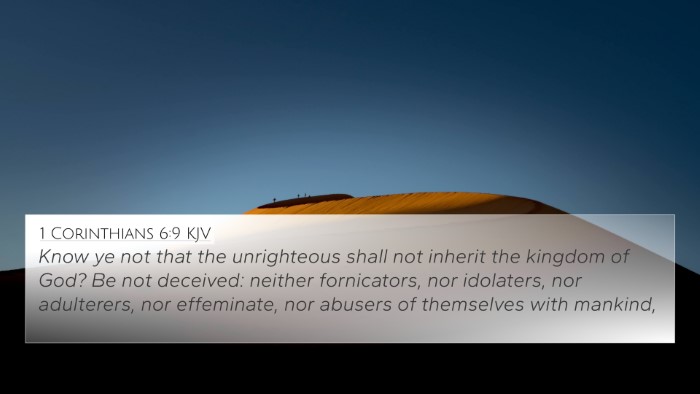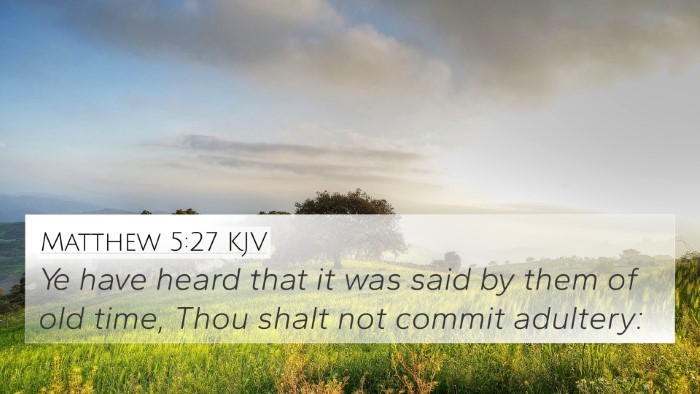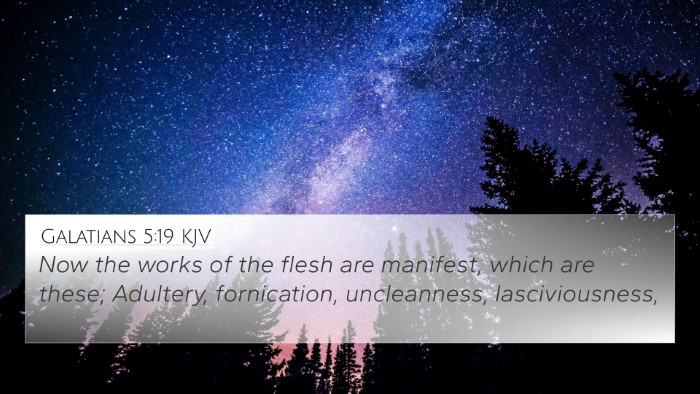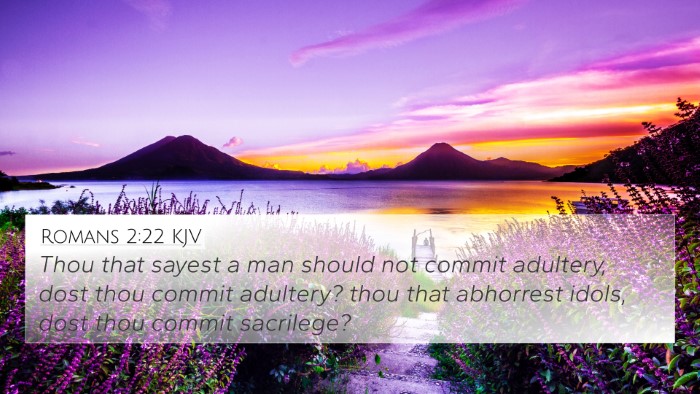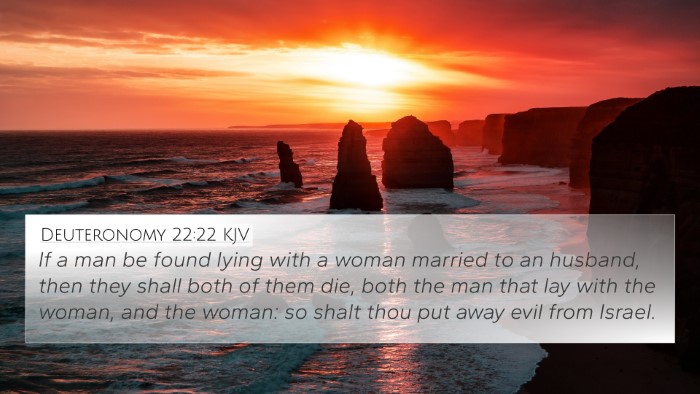Understanding Leviticus 18:20
Verse: "And thou shalt not lie carnally with thy neighbour's wife, to defile thyself with her: and thou shalt not give any of thy seed to set apart to Molech, neither shalt thou profane the name of thy God: I am the LORD."
Introduction: Leviticus 18:20 serves as an instruction from God regarding moral conduct, specifically prohibiting adultery and the worship of Molech. This verse encompasses significant themes of fidelity, idolatry, and holiness.
Insights from Commentaries
Matthew Henry's Commentary
Henry emphasizes the importance of sexual morality within the Israelite community. He explains that God prohibited lying with a neighbor's wife as a serious transgression that violates trust and sacred bonds. Henry also notes the mention of Molech worship and warns against the dangers of turning to idolatry, especially practices involving child sacrifice, which were prevalent among neighboring cultures.
Albert Barnes' Notes
Barnes indicates that this verse reflects the sanctity of marriage and the seriousness of moral impurity. He interprets the phrase “to defile thyself” as a warning against the personal and communal consequences of sin. Additionally, he highlights that the reference to Molech underlines the reality that God desires His people to separate from practices that are abhorrent to Him.
Adam Clarke's Commentary
Clarke elaborates on the idea of preserving familial relations and warns that engaging in adultery undermines family structure. He also refers to Molech as an ancient deity associated with heinous acts, reinforcing the need for Israel to uphold their exclusive devotion to the LORD. Clarke advocates for understanding this command as protective guidance from God.
Bible Verse Cross-References
Leviticus 18:20 can be effectively studied by comparing it with other biblical texts that discuss similar themes. Here are some notable cross-references:
- Exodus 20:14: "Thou shalt not commit adultery."
- Deuteronomy 18:10-12: Prohibitions against practices of idolatry, including child sacrifice.
- 1 Corinthians 6:18: "Flee fornication. Every sin that a man doeth is without the body; but he that committeth fornication sinneth against his own body."
- Proverbs 6:32: "But whoso committeth adultery with a woman lacketh understanding: he that doeth it destroyeth his own soul."
- Galatians 5:19: Lists the acts of the sinful nature, including sexual immorality.
- Romans 1:24-27: Discusses the consequences of abandoning God's design for sexuality.
- Hebrews 13:4: "Marriage is honorable in all, and the bed undefiled: but whoremongers and adulterers God will judge."
Thematic Bible Verse Connections
By engaging in a comparative Bible verse analysis, we can identify thematic connections that enrich our understanding of Leviticus 18:20. This verse highlights God's desire for purity and fidelity among His people. Here are some notable themes:
- Holiness: The call to live a life set apart for God.
- Faithfulness: The importance of keeping commitments in relationships.
- Consequences of Sin: Warning against the moral and social ramifications of infidelity.
- Idolatry: The rejection of false gods and practices that contradict God's commands.
Understanding Through Cross-Referencing
Using tools for Bible cross-referencing can provide deeper insights into the context and implications of Leviticus 18:20. Here are some methods to enhance your study:
- Utilize a Bible concordance to locate relevant terms and verses.
- Explore a cross-reference Bible study guide to trace inter-Biblical dialogue.
- Engage in thematic studies to understand links between the Old and New Testaments.
- Participate in group studies that focus on cross-referencing biblical texts.
Conclusion
In conclusion, Leviticus 18:20 presents a prohibition that not only addresses specific behaviors but also calls for a commitment to holiness and fidelity in relationships. Through careful attention to cross-referenced verses, believers can gain a fuller understanding of how to apply God's eternal truths in their lives today.





